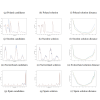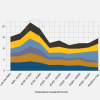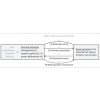BRIDGES
A network science approach to social cohesion in Spain
Description
As societies are becoming increasingly unequal, concerns about societal cohesion and democratic functioning are growing. In this light, it is surprising how little we know about the extent to which different social groups in terms of income, social class, and origin are socially connected in Spanish society, and what can strengthen these connections. Broad acquaintanceship networks, which connect every individual to hundreds of others through both intimate and superficial relationships, have long been assumed to bind societies together and provide a sense of community and solidarity. However, they are technically complex to study. This project will develop a ground-breaking methodology from the perspective of network science that can produce a novel understanding about social cohesion. The method will be implemented in a large-scale survey in Spain to assess levels of cohesion and explore the conditions under which boundary-crossing relationships and heterogeneous networks form, as well as the conditions under which they contribute to (or conversely, deteriorate) intergroup solidarity, social welfare preferences, social and political trust, and political orientation. Agent-based models will help us understand the resulting macro-level patterns and how cohesion can be improved. The results will be used to design evidence-based policies aimed at increasing social cohesion in Spain, and particularly solidarity with economically vulnerable groups.
Miranda Lubbers is the Principal Investigator of the Bridges project, which was financed by La Caixa. The survey center Opinomètre conducted the survey among 1,500 people in Spain, between November and December 2021.
Publications
-
AUTOMATED NAME SELECTION FOR THE NETWORK SCALE-UP METHOD (2024). Field Methods, 36 (3): 249-265. Preprint
-
HOW DO PEOPLE'S ACQUAINTANCES SHAPE THEIR SUPPORT FOR ECONOMIC REDISTRIBUTION AND SOCIAL PROTECTION? (2022). Dissemination article. The Social Observatory of La Caixa Foundation, Barcelona. Publisher's website
-
IN GOOD COMPANY? PERSONAL RELATIONSHIPS, NETWORK EMBEDDEDNESS, AND SOCIAL INCLUSION. (2021). Social Inclusion, 9 (4): 203-210. DOI / Open-access PDF



